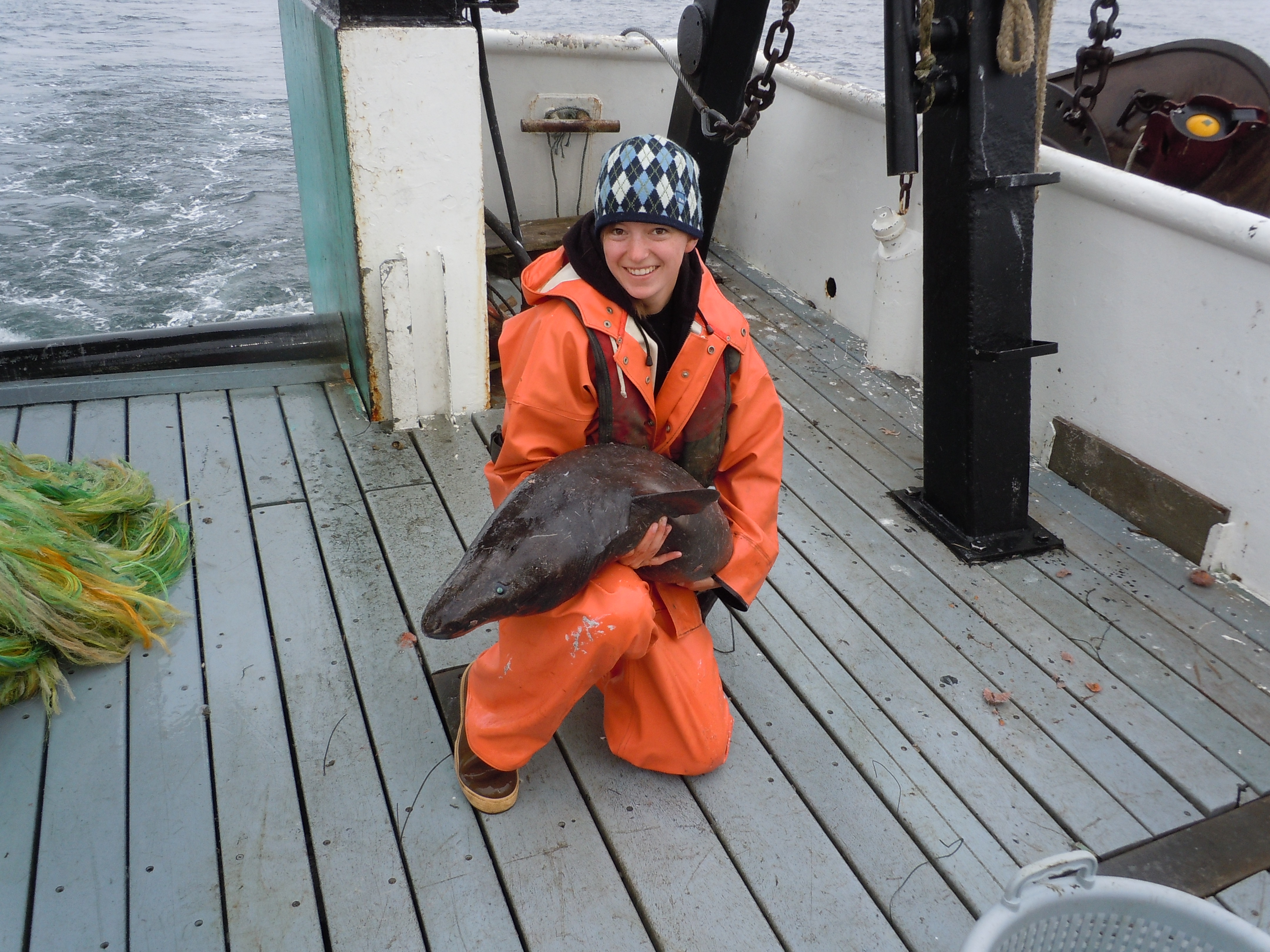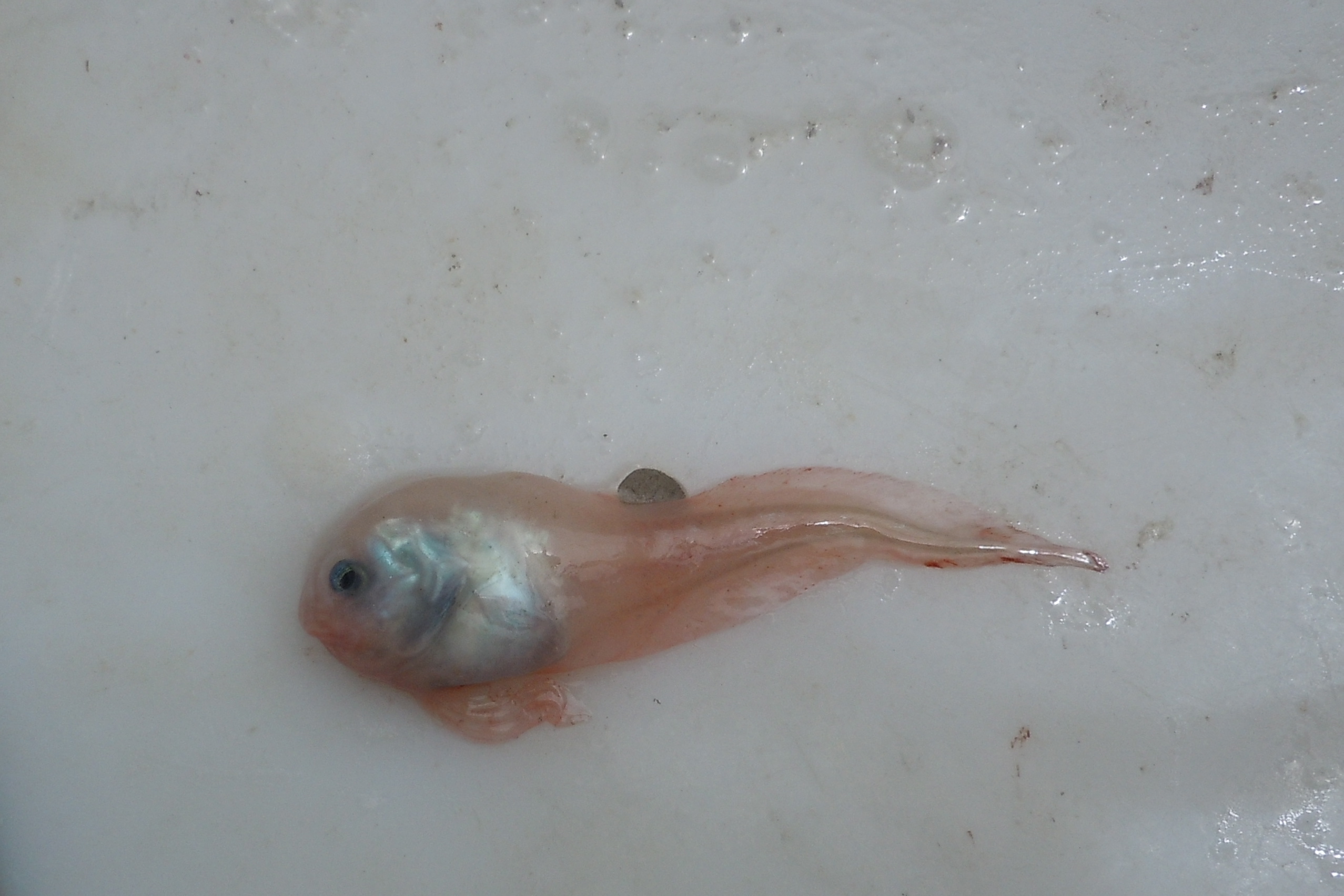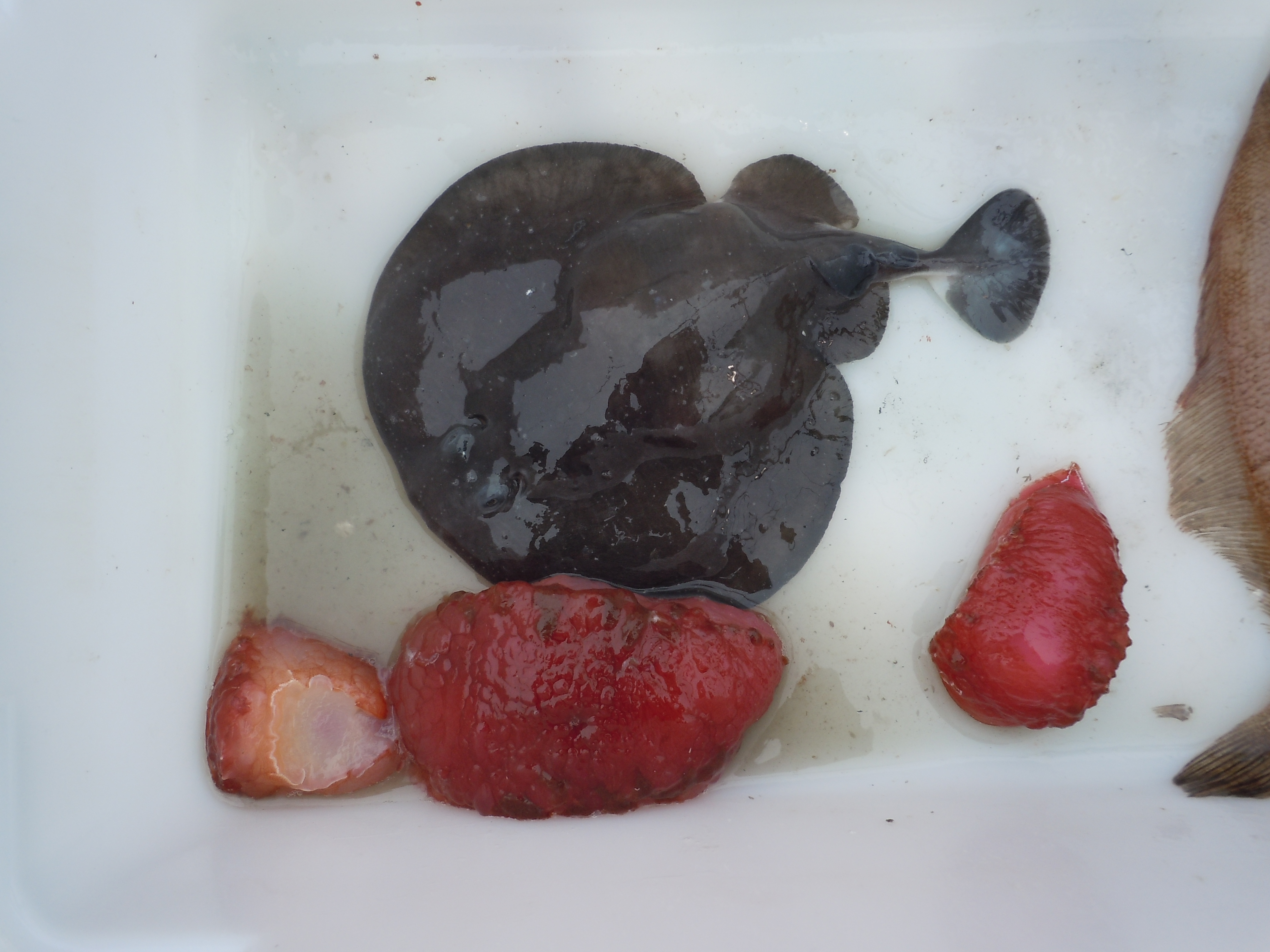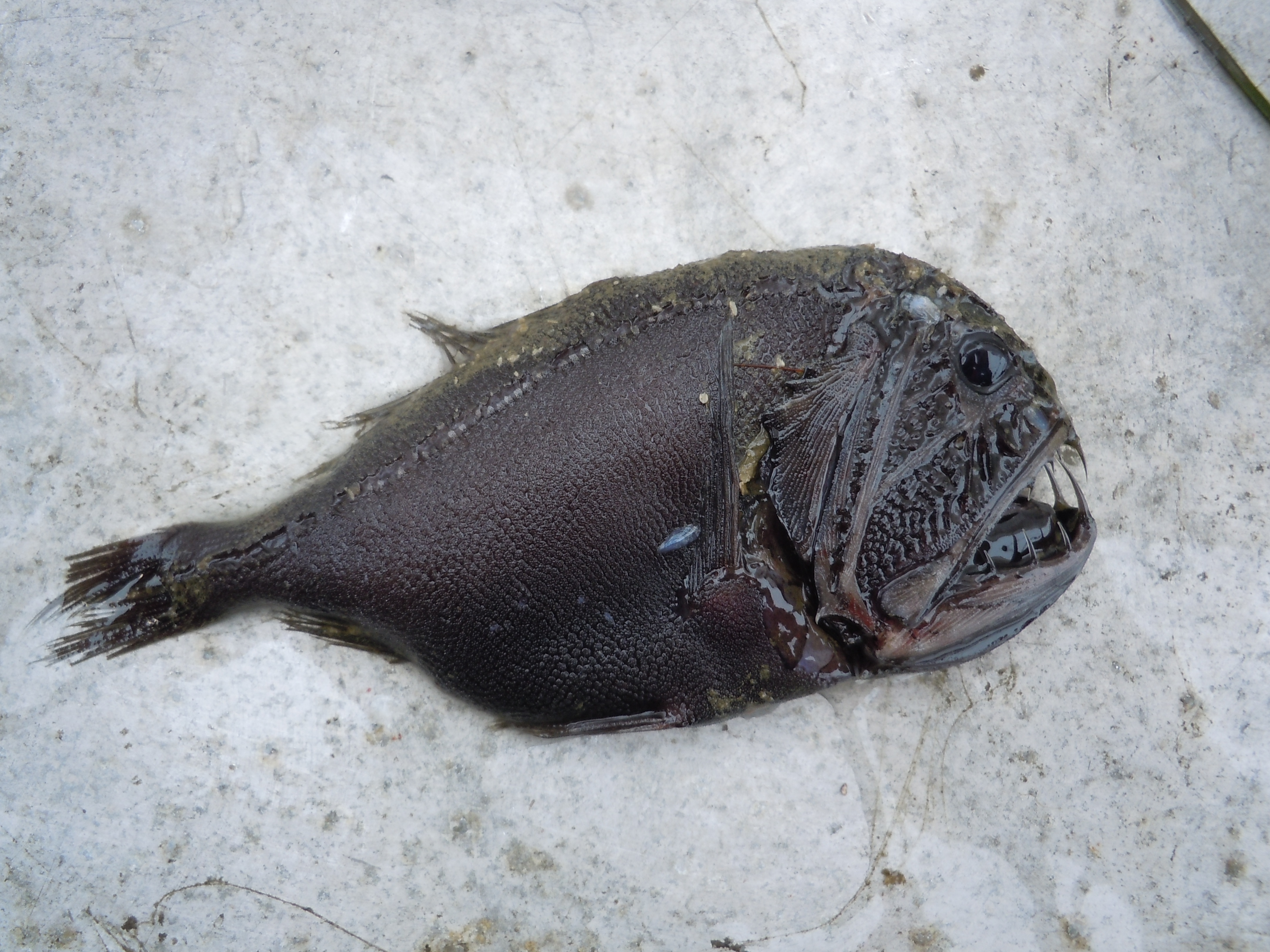 By Kelley Andrews, Pacific Shark Research Center
By Kelley Andrews, Pacific Shark Research Center
The high-pitched whine of the winch jolts me awake. I come groggily to my senses, noticing the cigarette smoke from some of the crewmembers wafting through the door of the bunkroom and the dim morning light. It’s somewhere around 5:45 am.
It is my third morning out at sea. I am on the F/V Noah’s Ark, volunteering for a leg of the National Marine Fisheries Service (NMFS) Fisheries Research Analysis and Monitoring (FRAM) survey. The mission of the survey is to assess the health of groundfish populations off the west coast of the United States. The survey makes two passes of the coast from Washington to Southern California every summer, fishing and taking samples and data. I am part of a team of three scientists, and we are with a crew of four fishermen on the 80-foot vessel. Right now we are somewhere west of Monterey, CA.

The first tow of the day begins around 5:30 am, so we can begin processing the catch by 6:30. The winches deploy and reel in the net from depths over 1,000 feet. As I go out on deck to get ready to sort fish, I notice that the weather has picked up. The first two days were flat calm, and I had no idea the ocean could be glassy 50 miles from shore. But today the winds and swell are picking up, and it feels as though we are headed for rougher weather.
We try to do 5 or 6 tows per day, and a typical tow takes about 2 hours to process. Once the catch is placed on the sorting table, all of the fish and invertebrates must be sorted into buckets and weighed. Some species require further processing, such as taking lengths, determining the sex of each fish, and taking otoliths for determining age. I have learned a lot about fish and fisheries science in my first three days.

After the first tow, we get breakfast. The food has been great on the boat, and one of the crewmembers, Ricki, usually cooks for us. Perhaps I have also thoroughly enjoyed the food because I’m relieved to not be horribly seasick. I was pretty nervous about that beforehand.
I consider this trip out to sea to be a sort of right-of-passage for me as an ichthyologist, and I feel fortunate to be enjoying myself so far. I’ve had the opportunity to gain some valuable field experience, plus we’ve pulled up a lot of cool fish! Now, hopefully the weather will cooperate for the rest of the trip…..

Author's Note:
It turns out that the weather completely deteriorated on the third night, and we were forced to run in close shore and anchor for the fourth day. It was too rough to safely continue fishing. After the fourth day the weather died down, and the rest of the trip went fairly smoothly.

